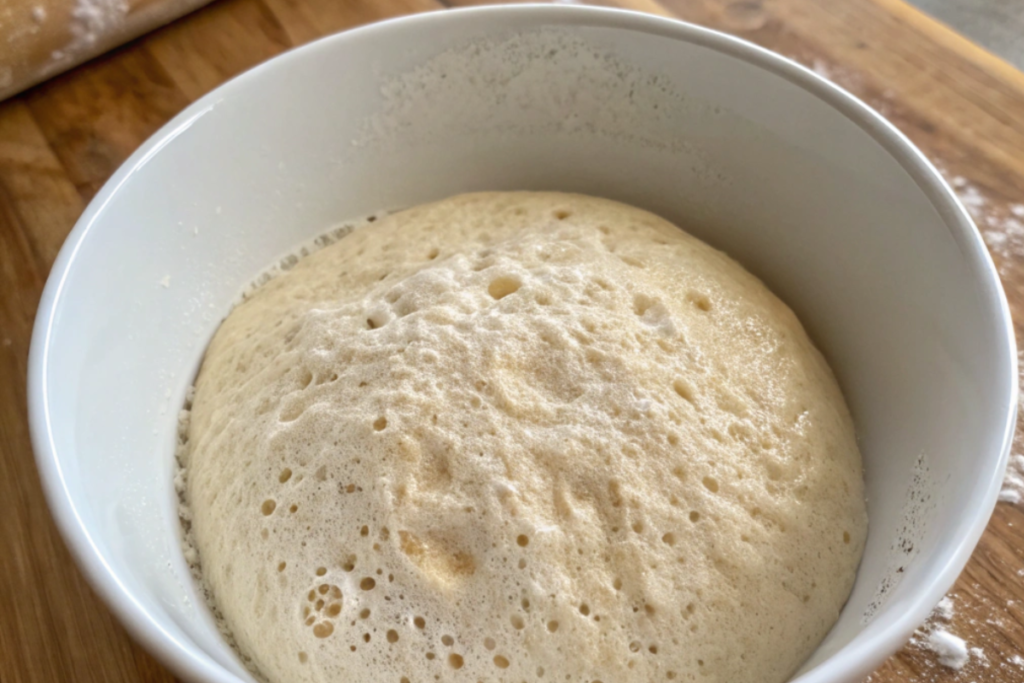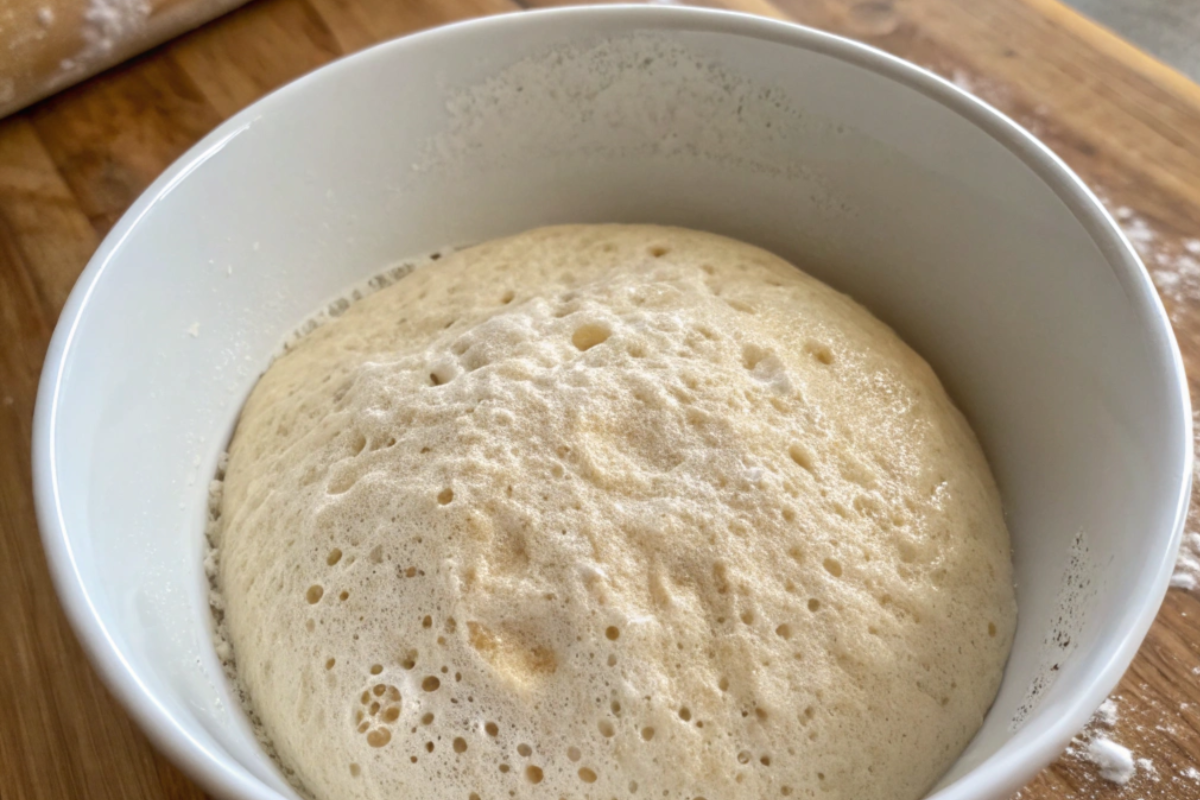If you’re an avid sourdough baker, you know that feeding your sourdough starter produces discard—a portion of the starter that gets removed during the feeding process. Often, this sourdo ugh discard gets thrown away, leading to unnecessary waste. But did you know that sourdough discar is a versatile ingredient that can transform your cooking and baking? From tangy pancakes to savory biscuits and crispy crackers, sourdough discard recipes are a fantastic way to reduce waste while adding incredible flavor to your meals.

In this guide, we’ll explore what sourdough dis card is, why you should use it, and how to incorporate it into a variety of delicious recipes. Whether you’re a seasoned baker or just starting your sourdough journey, this article will inspire you to unlock the full potential of your sourd ough discard.
2. What is Sourdough Discard and Why Does It Matter?
Understanding Sourdough Discard: What You Need to Know
Sordough dis card is the portion of starter that you remove when feeding your sourdough. Unlike an active starter that’s bubbly and ready for leavening bread, discard is less active. However, it still contains the same tangy flavor and probiotics that make sourdough unique.
Why is Sourdough Discard Useful?
The natural fermentation process of sourdogh creates complex flavors and enhances the nutritional value of baked goods. Sourd ough discard adds depth to recipes, improving both flavor and texture. For example, it can make pancakes fluffier, cookies chewier, and biscuits flakier.
3. Why Use Sourdough Discard?
Reduce Kitchen Waste
By using sourdough disc ard in your recipes, you reduce food waste—a win for both your wallet and the environment. Instead of throwing away perfectly good ingredients, you can incorporate them into delicious dishes.
Add Unique Flavor
The tangy taste of sourdough disc ard enhances the flavor of both sweet and savory dishes. Imagine pancakes with a subtle sour tang or crackers with a depth of flavor that store-bought snacks can’t match.
Improve Texture
Sourdough discard’s natural properties improve the texture of baked goods, making them softer, moister, and more tender.
4. Creative Uses for Your Leftover Sourdough Starter
4.1 Breakfast Recipes: Start Your Day with Sourdough Discard
- Fluffy Sourdough Pancakes: Combine your discard with flour, eggs, milk, and a touch of sugar for light and tangy pancakes. Top with fresh berries and maple syrup for a breakfast favorite.
- Crispy Sourdough Waffles: Add discard to your waffle batter for crispy edges and a soft interior. Perfect for a weekend brunch!
- Hearty Breakfast Bowls: Use discard to make a savory base for breakfast bowls, mixing it with eggs, veggies, and spices.
4.2 Bread Recipes: Sourdough Discard Beyond the Loaf
- Quick Breads: Sourdough banana bread, cornbread, or zucchini bread get a flavor upgrade with discard.
- No-Knead Bread: Mix discard into a no-knead bread recipe for an artisanal loaf with minimal effort.
- Pizza Crusts: Create a chewy, tangy pizza crust that pairs perfectly with any topping.
4.3 Sweet Treats: Delicious Desserts with Sourdough Discard
- Chocolate Chip Cookies: The slight tang of sourdou gh discard adds complexity to classic cookies.
- Moist Cakes: Use discard in chocolate, carrot, or spice cakes for a moist and flavorful crumb.
- Tangy Brownies: Sourdough dis card enhances the fudginess of brownies, creating a unique dessert.
4.4 Savory Dishes: Elevate Your Meals with Sourdough Discard
- Flatbreads: Use discard in naan, focaccia, or pita bread for a chewy, flavorful result.
- Biscuits: Sourdough disca rd biscuits are flaky and buttery with a slight tang.
- Scones: Add cheese, herbs, or garlic to sourdough scones for a savory twist.
4.5 Snacks and Appetizers: Crispy, Crunchy Creations
- Crackers: Mix discard with olive oil, flour, and your favorite herbs for crispy homemade crackers.
- Pretzels: Soft sourdough pretzels are perfect for dipping in mustard or cheese.
- Cheese Crisps: Combine discard with shredded cheese and bake for a crunchy, tangy snack.
5. Tips for Storing and Maximizing Sourdough Discard Storing Sourdough Discard
- Refrigeration: Store discard in an airtight container in the fridge for up to 7 days.
- Freezing: For longer storage, freeze discard in portions and thaw as needed.
Recipe Adjustments
- Liquid Ratios: Sourdough dis card is wet, so reduce other liquids in your recipe to maintain consistency.
- Flavor Pairings: Combine discard with complementary flavors like chocolate, cheese, or herbs for balanced dishes.
Experimentation
Don’t be afraid to get creative! Use discard in unexpected ways, like thickening soups or adding depth to salad dressings.
6. Common Mistakes to Avoid in Sourdough Baking
Using Old Discard
Discard with a strong sour or alcoholic smell should be thrown away—it’s too old for cooking.
Overloading Recipes
Too much discard can overpower other flavors or affect the texture of your dish. Use it sparingly and follow recipe guidelines.
Ignoring Liquid Adjustments
Failing to account for discard’s moisture content can result in soggy or dense baked goods. Always adjust liquids accordingly.
7. FAQ: Answers to Your Sourdough Discard Questions
- What is sourdough discard?
It’s the portion of starter removed during feeding. - How long can sourdough discard be stored?
Refrigerate for 7 days or freeze for 3 months. - Can sourdou gh discard be used for bread?
Yes, it adds flavor and texture to bread recipes.
8. Conclusion: Turn Waste into Flavorful Creations
Sourdou gh discard is an often-overlooked ingredient that has the power to elevate your cooking and baking. By using it creatively, you’ll reduce waste, explore new flavors, and make dishes that are as delicious as they are sustainable. Whether you’re whipping up a batch of pancakes or baking savory crackers, sourdough discard proves that one baker’s waste is another’s culinary treasure.
So, don’t let your sourdou gh discard go to waste. Experiment with these recipes and discover just how versatile this ingredient can be!

